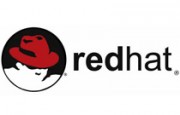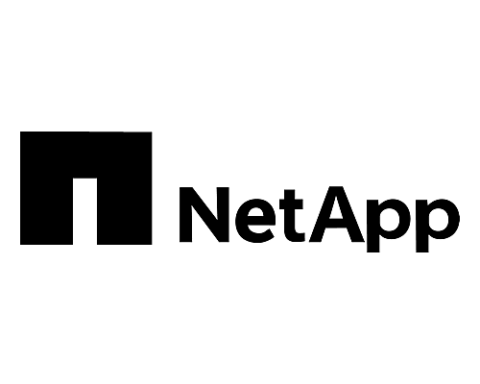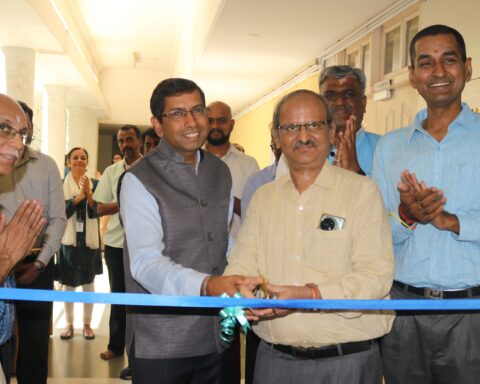Yale-NUS College deploys enterprise-grade OpenStack solutions, co-engineered by Red Hat and Dell, to create hybrid cloud infrastructure, reduces application deployment time by 80 percent
RedHat,Inc.,the world’s leading provider of open source solutions,  and Dell today announced that Yale-NUS College, Singapore’s first liberal arts college, has created a hybrid cloud – one of the region’s first – based on Red Hat and Dell solutions. With Red Hat Cloud Infrastructure, a comprehensive solution that supports organizations on their journey from traditional datacenter virtualization to OpenStack-powered clouds – running on a certified platform of Dell PowerEdge servers and Dell Networking, Yale-NUS College has created a hybrid cloud platform to gives its researchers, students and administrators access to automated, self-service processes for server requests and enable faster deployment.
and Dell today announced that Yale-NUS College, Singapore’s first liberal arts college, has created a hybrid cloud – one of the region’s first – based on Red Hat and Dell solutions. With Red Hat Cloud Infrastructure, a comprehensive solution that supports organizations on their journey from traditional datacenter virtualization to OpenStack-powered clouds – running on a certified platform of Dell PowerEdge servers and Dell Networking, Yale-NUS College has created a hybrid cloud platform to gives its researchers, students and administrators access to automated, self-service processes for server requests and enable faster deployment.
Yale-NUS College was established in 2011 as a collaboration between Yale University and the National University of Singapore (NUS) to provide a new model for liberal arts colleges in Asia. Yale-NUS College’s IT Infrastructure and Services team was tasked with creating an IT infrastructure that could support the growing liberal arts college’s students, researchers and staff with limited IT staff resources. The college built a private cloud for the data that needed to stay on site for legal and latency issues, with interconnectivity to cost-effective public cloud services.They used the hybrid cloud infrastructure project to rethink traditional approaches to IT in educational institutions, where many universities separate scientific research from other requirements, instead opting to create a cloud environment that would enable them to serve all of their customers via the same computing resources.
Yale-NUS College required a flexible solution that would enable them to quickly scale to meet demands for everything from compute-heavy scientific research to virtual environments for teaching and administrative purposes. They sought to create a highly interoperable and customizable cloud solution that would not only give them visibility into these diverse and changing workload demands, but which would also be able to cater to changes as the institution evolved without the need for heavy capital expenditure. With a small IT team, Yale-NUS College also required a solution that would support a high degree of automation and long-term stability to minimize downtime.
To address these challenges, Yale-NUS College created a software-defined datacenter and hybrid cloud based on a co-engineered Red Hat and Dell OpenStack cloud solution. Red Hat Enterprise Linux OpenStack Platform – part of Red Hat Cloud Infrastructure – was selected as the broad encompassing cloud foundation for Yale-NUS, making it easier to find skilled staff and to integrate the technologies with a broad range of open infrastructure. And, Yale-NUS College deployed Red Hat Enterprise Linux across its infrastructure, giving them increased consistency of security, control and management across the footprints of bare metal, virtual machines, private cloud and public cloud.
Based on the proven integration between Dell and Red Hat, the college selected Dell PowerEdge R720 and R720XD servers optimized for Linux workloads to create an easily-scalable solution designed to meet their needs now and in the future. Yale-NUS College also wanted future-ready networking to enable a software-defined data center, so selected Dell Networking S4810P and S55 switches, which helped to streamline costs, ease management and accelerate performance.
As a result of this transition, Yale-NUS has reduced the complexity of their datacenters so much that their IT infrastructure only requires nine managing engineers, who are able to use their background knowledge of Linux to run the hybrid clouds. With the combined Red Hat-Dell OpenStack-based cloud, Yale-NUS College has reduced application deployment time by 80 percent and brought greater agility to Yale-NUS College’s IT operations. They can now quickly add or remove capacity for their computing, storage and networking needs based on changing end-user workload requirements, and the hybrid platform gives the college the ability to run some workloads in-memory while moving others between virtual and physical servers. Installing new server hardware, which previously took Yale-NUS days to complete, now only takes one or two hours, reducing the workload and increasing the systems’ flexibility. Yale-NUS also cut capital requirements with the OpenStack-based solution, reducing the need for specialized hardware and enabling students to access the system through their own laptops, reducing the need for computer labs with underutilized machines.
For more than 15 years, Dell and Red Hat have collaborated to provide enterprise-grade open source-based solutions that offer greater agility to customers. Red Hat Enterprise Linux OpenStack Platform software and Dell enterprise cloud components are designed, co-engineered and integrated to accelerate time to value with open and flexible configurations that maximize choice and help avoid vendor lock-in. These solutions enable simplified cloud implementation through enterprise-grade software, certified platforms, professional services and complete lifecycle support. OpenStack cloud solutions from Red Hat and Dell help transform IT service delivery by deploying flexible and highly scalable cloud services that can support business needs.
Supporting Quotes
Darwin Gosal, senior manager, IT Services, Office of Educational Resources & Technology, Yale-NUS College
“We needed to be able to acquire advance capability without heavy capital expenditure and Red Hat Cloud Infrastructure on Dell solutions presented a solution that could easily integrate public infrastructure into our own. Due to the fundamental design principle of leveraging powerful hardware and open source software to establish our datacenter, we are seeing great interest in the possible replication of our architecture in other universities.”
RadheshBalakrishnan, general manager, OpenStack, Red Hat
“Yale-NUS College is a strong example of what we see today in terms of customers who are rethinking what the modern datacenter should look like – they not only created a flexible hybrid cloud environment to meet their diverse workload requirements and better serve their customers, but they also sought consistency across their footprints. They’ve turned to Red Hat Enterprise Linux to create a solid foundation and the basis for consistency across physical, virtual, private and public cloud. And I’m pleased that they deployed Red Hat Cloud Infrastructure on Dell solutions to create their highly scalable cloud. Red Hat and Dell are collaborating deeply on OpenStack, and we’re pleased to see the early success achieved by Yale-NUS College.”
Jim Ganthier, VP and GM of Engineered Solutions and Cloud, Dell
“Like many organizations today, Yale-NUS College was looking to maximize their IT spend by developing a cloud solution that met their business needs today and into the future. The Dell and Red Hat OpenStack-based hybrid cloud infrastructure gave them the flexibility, high-interoperability and customizable solution needed to reduce the complexity of their multi-cloud environment, and resulted in 80 percent reduced application deployment time and greater cost efficiency. Dell and Red Hat have had a long history of collaborating to solve customer challenges, and we’re happy to mark yet another success today.”
Additional Resources
· Read the full Yale-NUS College success story
· Learn more about Red Hat Cloud Infrastructure
· Learn more about OpenStack
· Learn more about Red Hat’s collaboration with Dell on OpenStack
· Read more Red Hat customer success stories
Connect with RedHat
Learn more about Red Hat
Get more news in the Red Hat newsroom
Read the Red Hat blog
Follow Red Hat on Twitter
Like Red Hat on Facebook
WatchRed Hat videos on YouTube
JoinRed Hat on Google+
Follow Red Hat on LinkedIn







